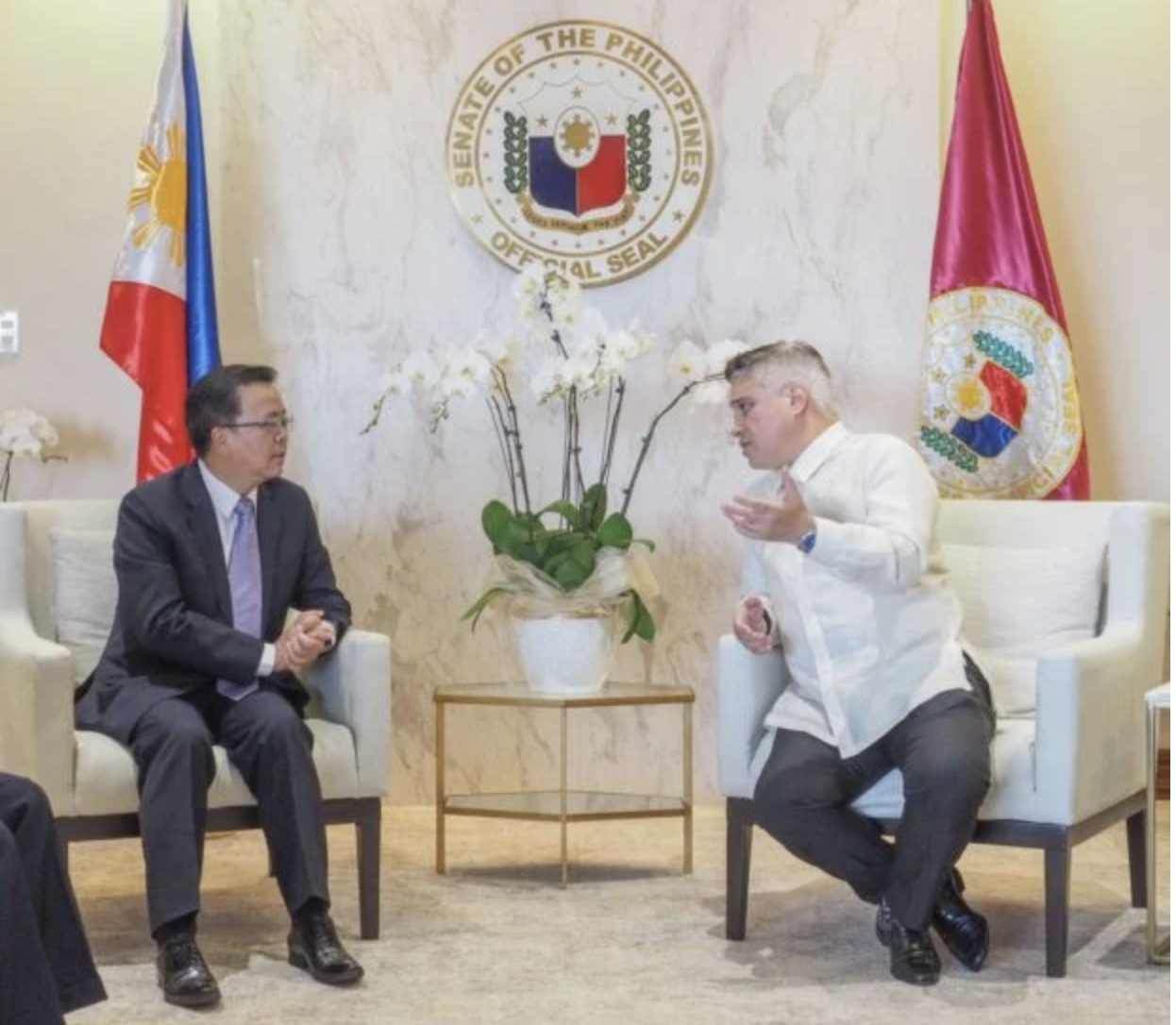Zubiri hits China’s ‘misinformation’ tag: We are not spreaders of fake news

Senate President Juan Miguel Zubiri welcomes H.E. Huang Xilian, Ambassador of the People’s Republic of China to the Philippines, at the Senate on October 10, 2022. Photo by Red Santos, Office of the Senate President
MANILA, Philippines—Senate President Juan Miguel Zubiri turned the table on Chinese Ambassador Huang Xilian, saying it was the latter who probably “misinformed” them about the Philippines’ supposed inclusion on China’s tourism blacklist.
On Wednesday, Zubiri stood by his statement that the word blacklisting came from Huang himself when they met in the Senate on Monday.
“The fault lies with the ambassador. He mentioned blacklisting, siguro baka nagkamali ang ambassador pero we stand by our statement na binanggit po ng ambassador ang word backlisting several times,” the Senate leader said in an interview with reporters.
(The fault lies with the ambassador. He mentioned blacklisting, maybe the ambassador made a mistake but we stand by our statement that the ambassador mentioned the word backlisting several times.)
“Hindi ako nanaginip sa aking statement. Siguro nagkamali lang sila sa position but the word blacklisting came from the ambassador and we’d like to stand by that statement that he mentioned blacklisting several times,” he said.
Article continues after this advertisementDuring a Senate hearing on Tuesday, Zubiri disclosed that the Philippines has already been included in China’s blacklist of tourist destinations for continuously hosting Philippine offshore gaming operators (Pogos), citing his conversation with the Chinese envoy.
Article continues after this advertisementBut the Chinese embassy refuted the senator’s statement.
“The report of ‘tourist blacklist’ is misinformation. China has not placed the Philippines on its blacklist for tourism,” the embassy told reporters in a message.
Zubiri said he was “shocked by the turn around.”
According to the senator, it is also regrettable that the embassy used the word “misinformation” in its statement when they could have simply issued a clarification on the issue.
“I think it should have just been a clarification. Kasi clarification would mean clarify what the ambassador has said. But misinformation, lumalabas na para akong Marites na nagbibigay ng maling information or tinatawag na fake news. Eh di naman fake news yun eh daming nakakinig sa kanya,” the Senate leader said.
(I think it should have just been a clarification. Because clarification would mean clarify what the ambassador has said. But misinformation, it looks like I’m a Marites spreading false information or fake news. But that’s not fake news.)
So when asked if the embassy’s statement merits an apology from him, Zubiri quickly answered no.
“Sya talaga ang nagkamali hindi kami, ang daming witness. Sya ang nagkamali. Maybe the misinformation came from…we were misinformed by the ambassador possibly,” he pointed out.
(It’s really him who made the mistake, we have many witnesses. He’s the one who made a mistake.)
Zubiri stressed that senators are not liars and “spreaders of fake news.”
“As again, I said it is regrettable that they used the word disinformation . We are not spreaders of fake news here,” he said.